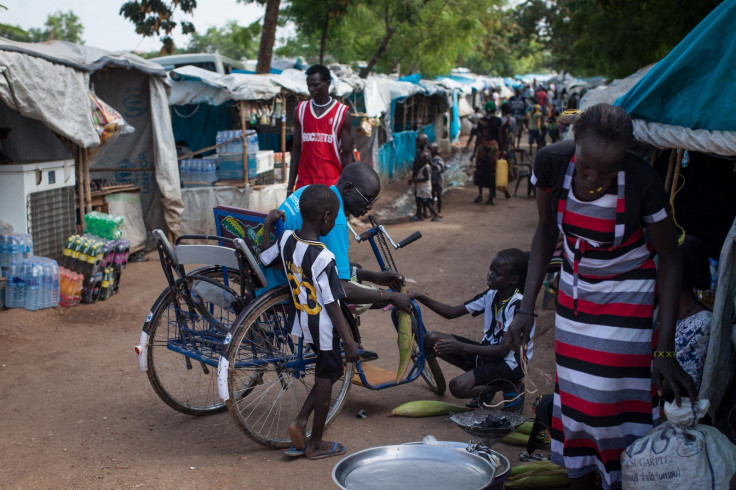South Sudan: Army to investigate rape allegations against Nuer women and girls
Army accused of sexually assaulting women and girls displaced by recent fighting in capital Juba
The South Sudanese army has announced it will investigate allegations of rape of women and girls from the Nuer ethnic group by government troops. Earlier in July, witnesses and civilian leaders warned soldiers allegedly raped "dozens of ethnic Nuer women and girls" who had sought shelter at a UN base after being displaced by recent violence in the capital Juba.
Military spokesman Lul Ruai Koang said the army was taking "the whole accusation very seriously."
Witnesses told AP news agency that at least one incident occurred as Nepalese and Chinese peacekeepers were looking.
"They were seeing it. Everyone was seeing it," the witness, who spoke on conditions of anonymity, said. "The woman was seriously screaming, quarrelling and crying also, but there was no help. She was crying for help."
The UN confirmed at least 120 cases of sexual violence have occurred in Juba since civilians fled their homes following fighting which led to at least 300 deaths at the beginning of July.
UN spokesperson Farhan Haq said the UN peacekeeping mission in South Sudan (Unmiss) received "deeply disturbing reports of sexual violence, including rape and gang rape, by soldiers in uniform and men in plain clothes against civilians, including minors, around UN House and in other areas of Juba."
The reports came as rebel leader and former vice-president Riek Machar was dismissed after he fled Juba. A section of the Sudan People's Liberation Movement-in-Opposition (SPLM-IO) appointed Taban Deng Gai, minister of mining and SPLM-IO former chief negotiator as the acting vice president. However, Machar deemed the new appointment as illegal.
Machar had fled South Sudan in 2013, when the country descended into civil war. His return earlier this year and his reinstatement as vice-president had restored hopes for the implementation of a peace process signed in August 2015. However, tensions have been running high since Machar's return.
Some analysts have pointed out the replacement could create fractures within the opposition with a group supporting Machar and the other supporting Gai. This, coupled with the recent resurgence of violence, is sparking fears that South Sudan could be plunged back into civil war.
South Sudan conflict explained
South Sudan's conflict erupted in 2013 when President Salva Kiir, of the Dinka ethnic group, fired his deputy Machar, from the Nuer group, and his cabinet.
Ethnic-related violence then spread, with militia groups carrying out attacks in villages and areas known to be inhabited by either the Dinka or Nuer tribes.
More than 10,000 civilians have so far been killed in the conflict, amid allegations of crimes against humanity committed by both sides, including extrajudicial killings, abductions, rape, torture and use of child soldiers. At least two million people have also been displaced.
Although the warring factions have signed at least seven peace deals, violence has continued, and a January report from the African Union blamed both leaders for the ongoing unrest.
Following the recent upsurge of violence, the South Sudanese government has been urged to accept more UN peacekeepers in the country, in a plan backed by the African Union (AU). However, the government opposed the plan with the South Sudanese ambassador in the UK exclusively telling IBTimes UK the country does not want "to be meddled with by foreign troops".

© Copyright IBTimes 2025. All rights reserved.





















